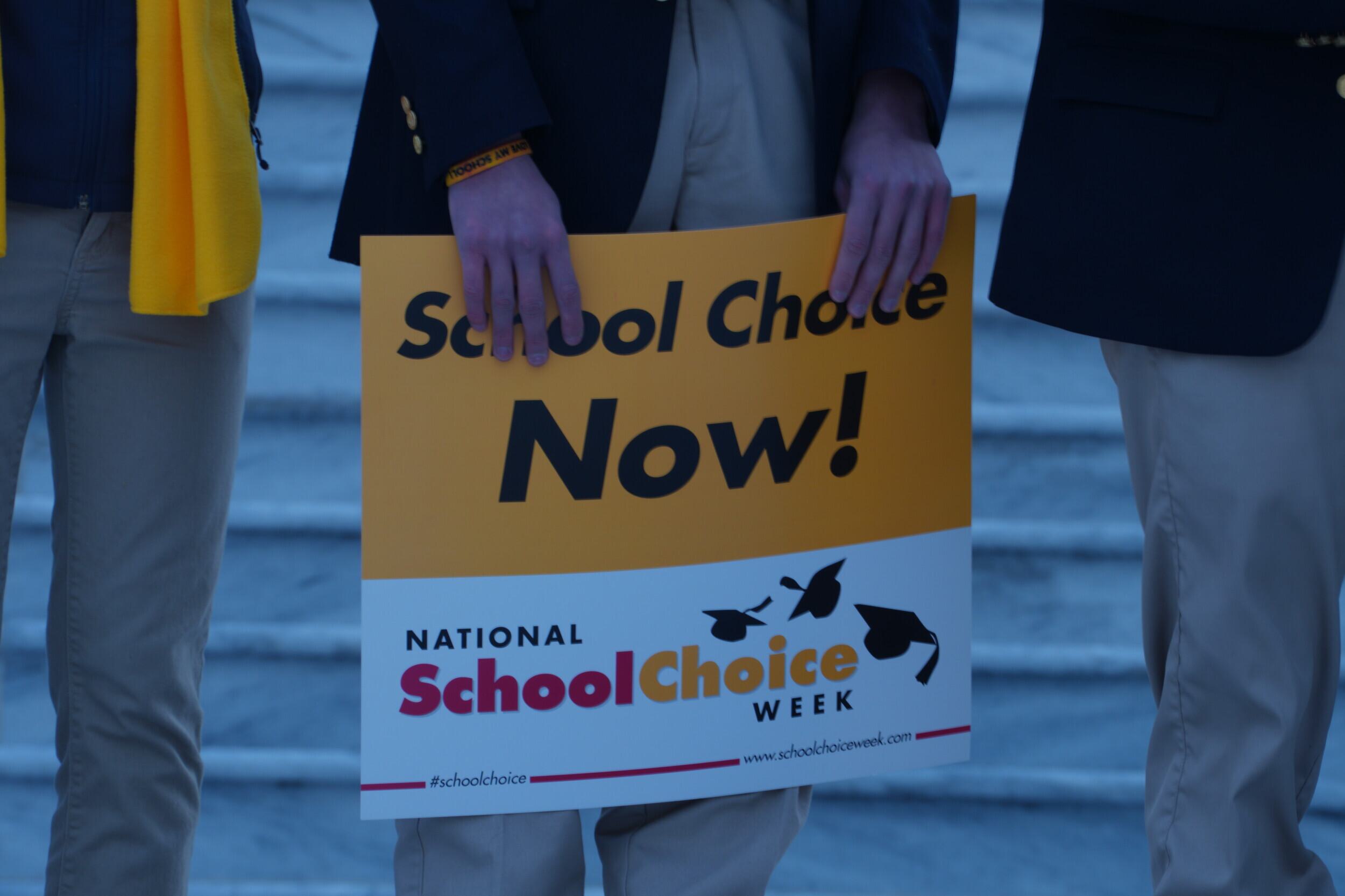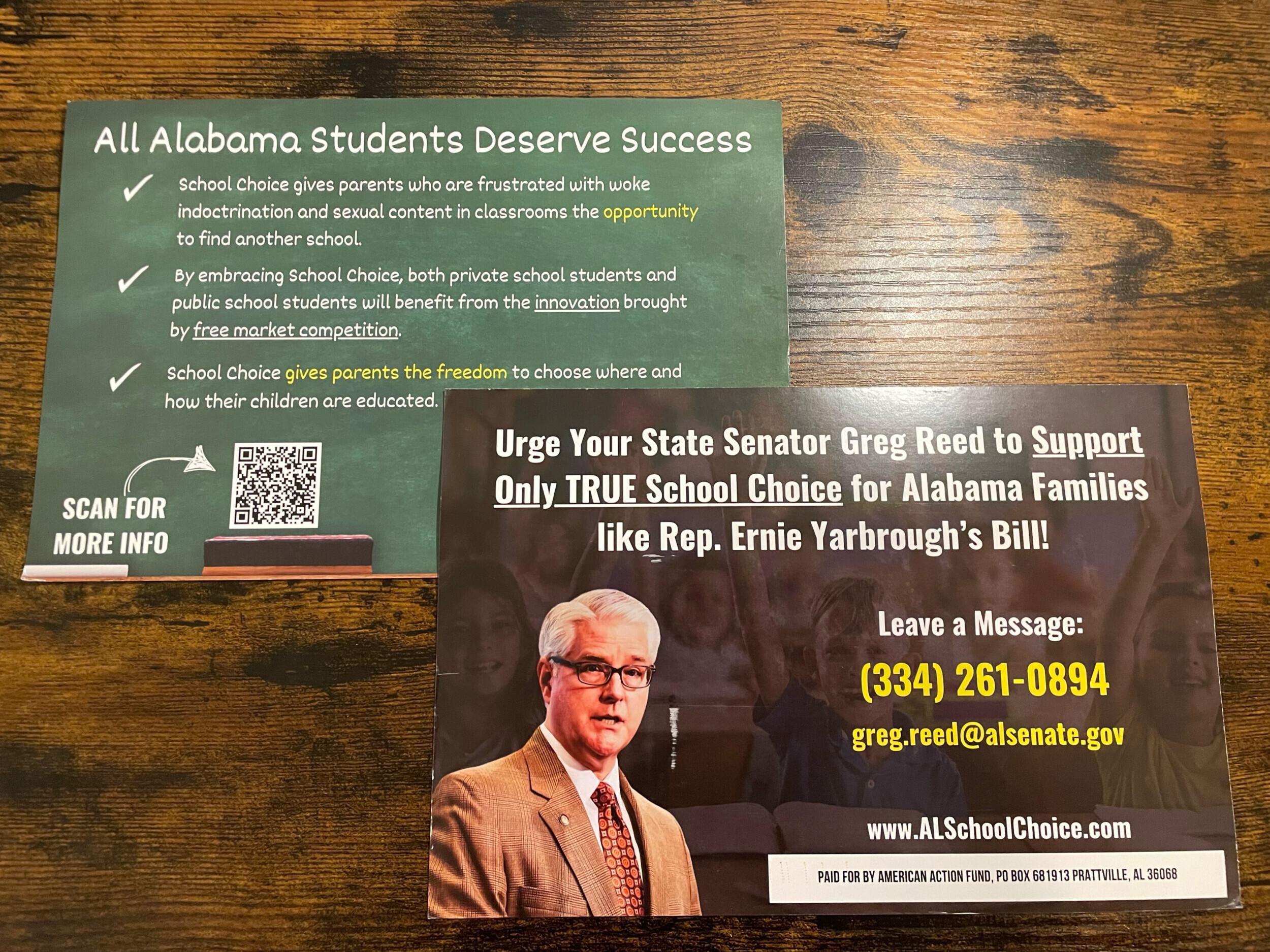State Rep. Ernie Yarbrough (R-Trinity) has officially pre-filed a universal school choice bill less than a week out of the 2024 legislative session.
School choice will undoubtedly be a hotly debated subject when lawmakers begin their annual gathering in the state's capitol. Many in the state oppose any legislation that gives nonpublic school families access to taxpayer funds, and those open to the idea often disagree on the scope and implementation of any school choice bill.
In 2023, Yarbrough backed the Parental Rights in Children's Education (PRICE) Act, which would have created an Education Savings Account (ESA) system allowing parents to use state funds from the Education Trust Fund (ETF) to apply towards their children's education, whether that be in another public school, charter school or homeschool.
After the last session, Gov. Kay Ivey said she wanted Alabama to be "the most school choice-friendly state in the nation." Her office is working to draft school choice legislation to create an ESA bill for 2024.
House Bill 88 (HB8), also called the True School Choice in Alabama Act, is similar to the PRICE Act with several changes. HB 88 would create and fund ESAs $6,900 annually - the amount the state spends on each student in the public school system - to any K-12 student in Alabama whose parents wish to participate. These funds could be used for educational expenses, including tuition, textbooks, and transportation. Total expenditures from the state's Education Trust Fund (ETF) would be capped at $400 million. The bill would also create an advisory board to implement and administer the bill's provisions.
A section of the bill reads, "This act intends to prevent discrimination against parents who must pay both tuition and taxes if they choose a nonpublic education, or who are denied that right because of a lack of funds, and to prevent violations of the Alabama Religious Freedom Amendment and both the Establishment Clause and the Free Exercise Clause of the First Amendment to the United States Constitution."
Critics of school choice, most notably the Alabama Education Association (AEA), claim any ESA would take resources away from the state's already struggling school system by bleeding the ETF.
Yarbrough told 1819 News the cap for spending from the ETF is $400 million. If the financial demands outweigh the money supply, the ESA budget will increase by 10% in the next fiscal year.
Some have suggested a staggered approach to growing ETF spending, making ESA funding contingent on growth within the budget, a proposition Yarbrough excluded from his bill.
"As Lt. Gov. Ainsworth pointed out, it will take money from the ETF, but it's the parent's money," Yarbrough said. "So in order for it to be a truly fiscally responsible, limited government approach that's true to our political roots and values, it is important that we grow the amount in the fund without tying it to the growth of government. We're not saying we're going to have to grow taxes and grow government in order to give the people's money back to them, especially when it's already set aside for education. The end goal is to inject free-market realities and accountability into the current system as it exists in order to give a chance for a true, meaningful impact to our kids."
HB88 would not require that education institutions participating in the program administer any government-mandated tests.
"If we say a school has to administer a test, that means we are telling them what they have to teach," Yarbrough continued. "The goal of school choice is to create freedom in education, not increase government involvement and control in education."
An additional provision in HB88 is a provisional tax credit for parents and institutions who send their children to nonpublic schools but choose to avoid taking advantage of ESAs. The credit would be for half the amount allotted of per-student state funding.
American Action Fund immediately announced their support for the bill.
"If passed, The True School Choice for Alabama Act would make Alabama the leader for parental rights in education," said DJ Parten, Alabama state director for AAF. "That is why American Action Fund is already working to mobilize the grassroots in favor of this crucial legislation."
The organization also mailed over 100,000 Alabamians across 37 legislative districts, encouraging them to contact their elected officials and ask them to support Yarbrough's bill. Some contain scathing pronouncements on the AEA contributions to lawmakers.
"If lawmakers adopt a clean school choice bill where the money follows the student, it doesn't increase government spending. It is simply a reallocation of the money already being spent for that child's education," said Ted Patterson, Vice President of Grassroots at American Action Fund. "There is no reason to delay implementation of a school choice program because the money is already there."
"Instead of throwing more of our hard-earned tax dollars at government schools that continually fail our children, it is time to let parents choose the best educational path for their children," Parten concluded. "Our government has seen record budgets in recent years. There is no excuse to not give parents control of their child's education."
To connect with the author of this story or to comment, email craig.monger@1819news.com.
Don't miss out! Subscribe to our newsletter and get our top stories every weekday morning.











